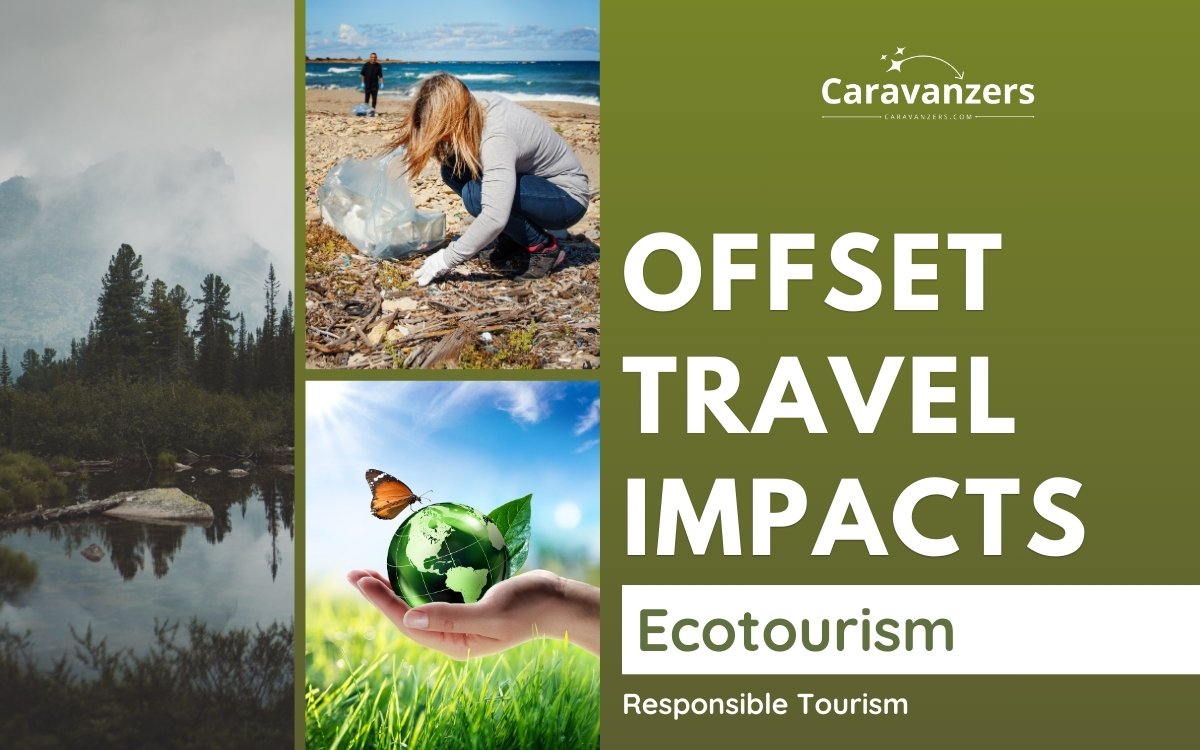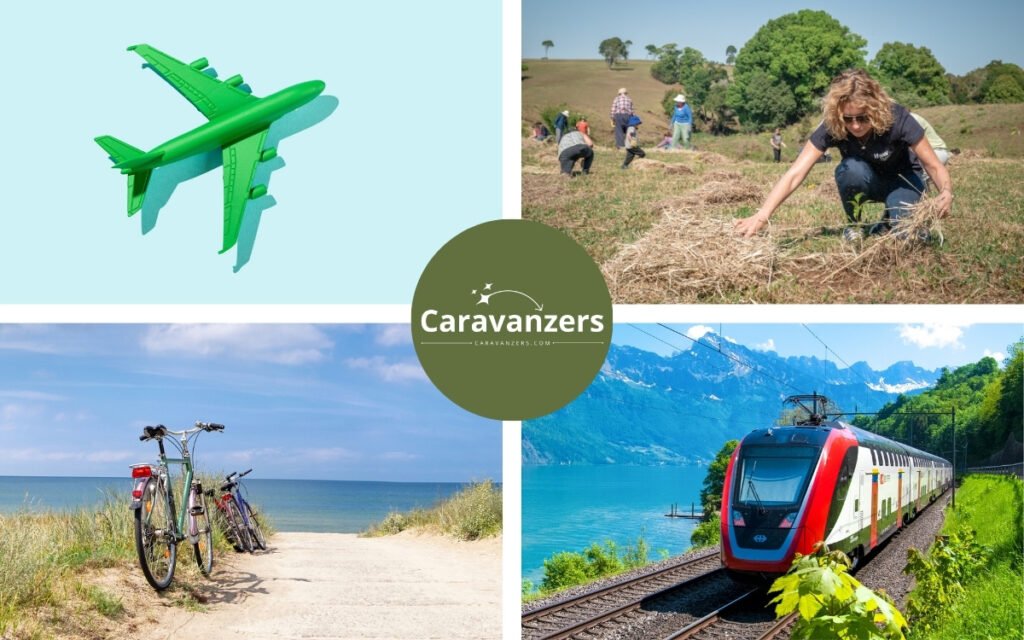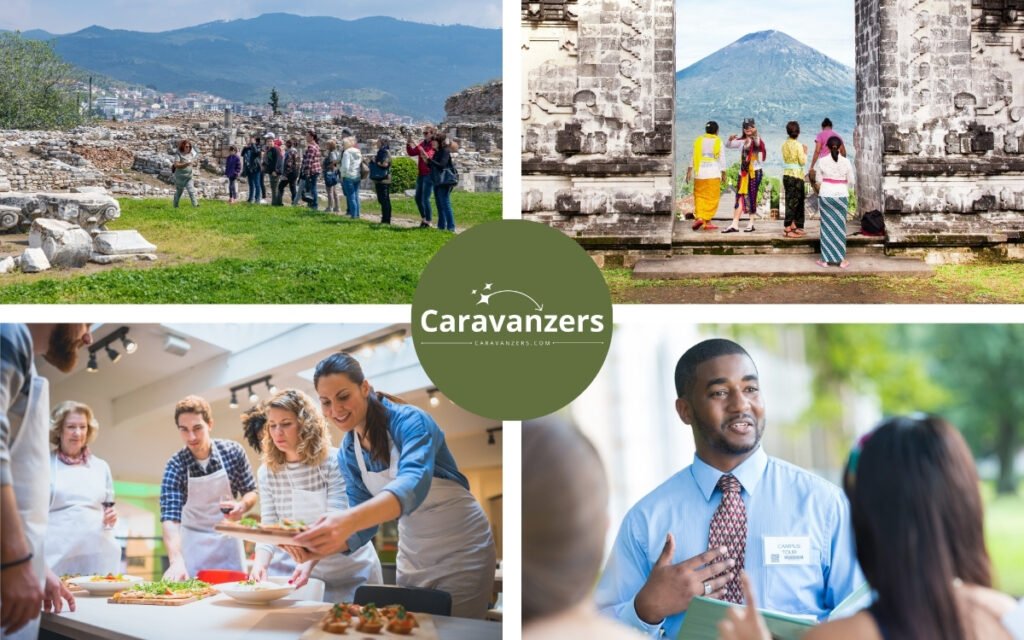
Ecotourism is a way to fight for our planet, and this guide has everything you need to know to be part of it.
Millions of travelers worldwide participate in tourism that harms our planet, our species, and other animals.
That is where ecotourism comes in, and this is a great way to work toward a traveling industry that isn’t harmful.
So, in this guide, I will share tips and ideas with you on how you can support great change in the travel industry.
Let’s get started.
Ecotourism 101

Ecotourism is responsible travel that focuses on several important areas related to our industry. For example, joining efforts to save the oceans.
Major focuses include environmental conservation, supporting local communities, and promoting education about natural and cultural heritage.
Of course, ecotourism isn’t about restricting our travel. Instead, this is a way to focus on enjoying travel responsibly.
In other words, it’s about traveling while minimizing negative environmental impacts.
So, in the following sections, I will expand on major topics associated with ecotourism.
Ecotourism Education
Education is for you, first and foremost. By becoming aware of what’s happening, you can be part of the solution.
Our world, and everything in it, is being harmed by our tourism activities. The best way to combat that is through education.
Start by educating yourself about the destinations you plan to visit. You can do this in many ways.
For example, you can educate yourself on ecological significance, cultural heritage, and conservation challenges.
Learn about local customs, traditions, and environmental issues to better understand how your actions can affect the places you visit.
The first time I traveled to the Amazon Rainforest, I had no idea how tourism is used to hurt this vital resource.
It was through countless encounters with educational organizations that I learned to appreciate their worth.
Organizations such as Sustainable Travel International educate us about the impacts of tourism.
Their work focuses on protecting nature, combating climate change, empowering communities, and tackling waste and pollution to preserve fragile ecosystems.
So, this Seattle-based endeavor is one of the many organizations educating both individuals and businesses.
Plus, they have been around for over 20 years!
Wildlife Protection
Wildlife protection is a way to pledge not to participate in tourism activities that harm animals.
One way to prioritize wildlife protection is by seeking out responsible wildlife tourism experiences that focus on animal welfare.
For example, this means you would have to avoid activities that exploit or harm animals.
Think of activities like visiting attractions with captive animals.
A great way to compliment your pledge is to support one of the organizations that work to support this industry.
World Wildlife Fund, or WWF, is one of the most famous organizations in this space. They are a Washington, D.C.-based.
This organization works through public policy, science, business, and wildlife conservation in various countries.
So, the reason to support an organization like that is because they are bigger than us.
For instance, WWF lobbies the U.S. government to make changes, and they have worked on this since the 1980s!
Community Engagement

Community engagement works through supporting local communities, learning about their culture directly from them, and more.
One of the greatest things you can do through ecotourism is community engagement.
This is when you engage with locals in your destinations in a respectful and meaningful way.
Do this by supporting locally-owned businesses, participating in community-based tourism initiatives, and respecting local customs and traditions.
Learn from residents about their way of life and the challenges they face, and seek opportunities to contribute positively to their well-being.
A great organization that does that is the Center for Responsible Travel (CREST), another Washington, D.C.-based organization with decades of work under its belt.
The center conducts pioneering tourism research, facilitates destination stewardship, and provides educational opportunities to promote sustainable tourism and community engagement.
Of course, they do that in many ways, including its World Tourism Day Forum, which explores the evolution of the tourism industry.
Sustainable Practices
Sustainable practices are behaviors we take on to minimize our harmful impacts on the destination we visit and the world at large.
From flights to trains and from buses to rental cars, we cause a lot of havoc in reaching our destinations.
Once there, we also continue with even more damage, which is why it really is essential to work to minimize this.
So, a great way to do just that is to practice behaviors that minimize our environmental footprint.
Think of areas like reducing waste, conserving water and energy, and supporting eco-friendly transportation options.
For instance, rather than driving, it would be better to take a train since it hauls more passengers.
Likewise, you will want to choose accommodations and tour operators that have implemented sustainable practices and certifications.
In some destinations, including New York City, there are efforts in place, and you can be part of the solutions.
Of course, you can extend your by joining up an organization’s objectives. The International Ecotourism Society (TIES), for instance, is a great choice.
This American organization does networking, education, and advocacy for ecotourism professionals worldwide.
Biodiversity Conservation
Biodiversity conservation is putting our money where our mouth is by actively participating in these initiatives.
We can support biodiversity conservation efforts by visiting protected areas, national parks, and wildlife reserves.
Our tourism dollars can truly contribute to conservation initiatives when we make it our intention to do so.
We should respect natural habitats and ecosystems. We do this by following designated trails and guidelines to minimize disturbance to wildlife and their habitats.
In Africa, for example, our safari trips can help save wildlife from human misinformation and cruelty.
Ecotourism – Final Thoughts
As you saw throughout this guide, ecotourism participation varies. Just don’t let it intimidate you.
It can be accessible with proper planning, research, and respect for local ecosystems, cultures, and guidelines.
The best thing to do is to keep remembering why you’re doing it. Participating in ecotourism can benefit both ourselves and the planet.
It does that by promoting conservation, supporting local economies, and nurturing cultural exchange.
So, go ahead and be brave, and start supporting ecotourism right now.
AJ Paris is a travel photographer based in New York. He is the editor of Caravanzers.
Follow us on Pinterest.
